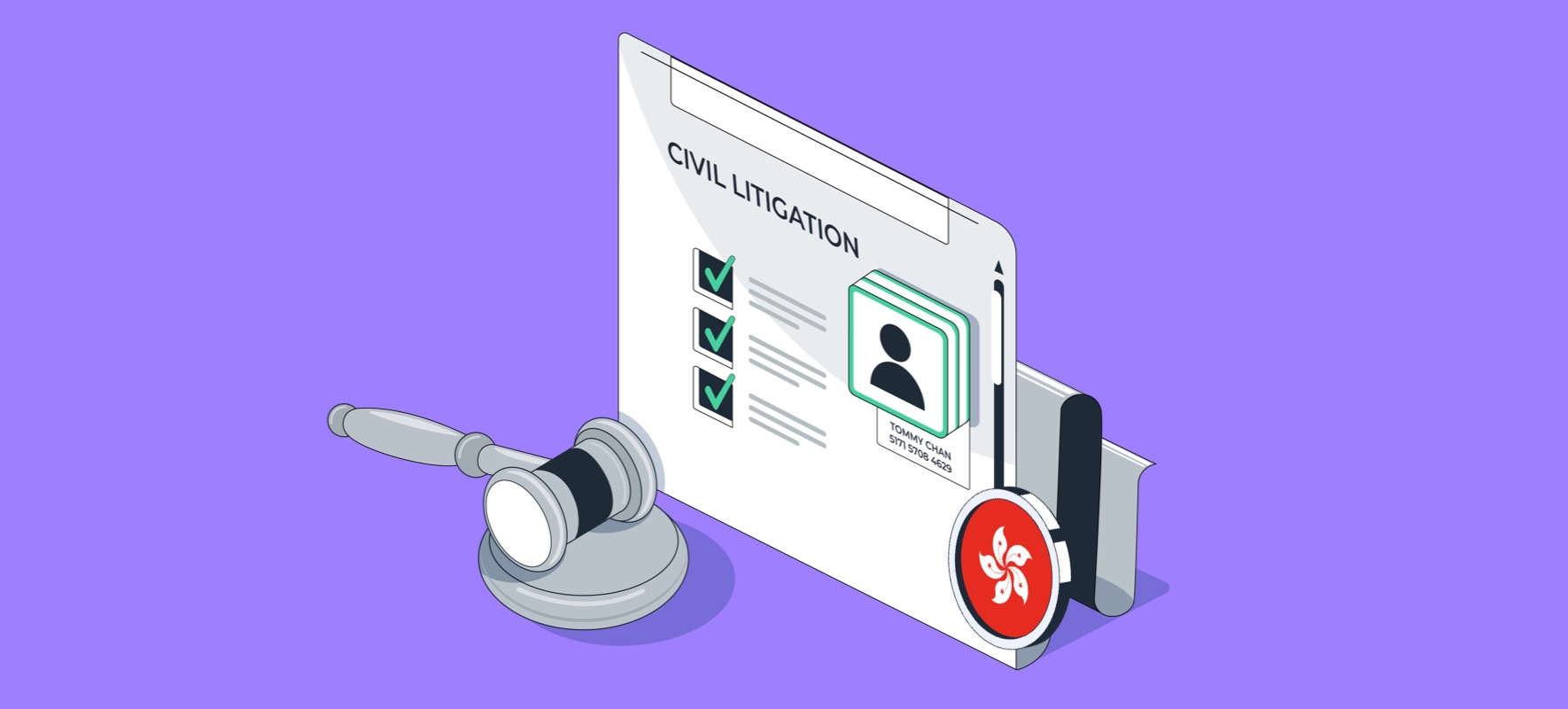Introduction
What Are Global Sanctions Checks and Politically Exposed Persons (PEP) Check?
A Global Sanctions Checks involves screening an individual’s name against a wide range of international, regional, and local watchlists. These include databases maintained by the United Nations, OFAC (U.S. Office of Foreign Assets Control), the European Union, HM Treasury (UK), and relevant Asia-Pacific regional sanctions lists, including those used by financial institutions and regulators in Hong Kong.
Whereas, Politically Exposed Persons (PEP) Check identifies whether an individual has held or is closely related to someone who has held, a prominent public position, such as a senior government official, legislator, judge, military officer, or state-owned enterprise executive. In Hong Kong, this is particularly relevant due to the city’s proximity to mainland Chinese political and financial networks.
These checks help employers determine whether a candidate may be flagged for:
- Involvement in financial crime or corruption
- Associations with terrorist or criminal organizations
- Political influence that may present compliance, reputational, or ethical risks
In Hong Kong’s tightly regulated industries, especially banking, asset management, insurance, law, and real estate, these checks are not optional; they are an essential part of risk management and regulatory compliance.
What Do Global Sanctions Checks and PEP Check Do?
A Global Sanctions and Politically Exposed Persons (PEP) Check plays a key role in safeguarding businesses from legal, financial, and reputational risks. In a global-facing city like Hong Kong, where companies often deal with international clients, cross-border partners, and politically connected individuals, this check helps ensure that every hire or business relationship meets regulatory expectations and ethical standards.
Here’s what the check is designed to do:
Identify Sanctioned Individuals and Entities
It screens a candidate’s or business partner’s name against hundreds of global, regional, and local watchlists. These include lists from the UN, OFAC (U.S.), EU, HM Treasury (UK), and regional authorities relevant to Hong Kong. The goal is to detect whether a person:
- Is subject to international trade or financial restrictions
- Is affiliated with banned or high-risk companies
- Is flagged for national security, financial crime, or corruption concerns
Detect Politically Exposed Persons (PEPs)
The check flags individuals who currently hold or have previously held high-profile public positions such as:
- Senior government officials
- Members of the judiciary or legislature
- Military officers
- Executives in state-owned enterprises
- It also flags close relatives or associates of such individuals, who may present elevated corruption or conflict-of-interest risks.
Highlight Adverse Media and Enforcement Actions
Beyond official sanctions, the check may reveal:
- Negative media coverage tied to fraud, bribery, or misconduct
- Regulatory enforcement actions or criminal investigations
- Disqualification or disciplinary records from professional bodies
Support AML, CTF, and KYC Compliance
For employers in sectors like finance, legal, real estate, and insurance, this check supports compliance with local and international obligations, including:
- Anti-Money Laundering (AML) laws
- Counter-Terrorist Financing (CTF) regulations
- Know Your Customer (KYC) guidelines
In essence, a Global Sanctions Checks & PEP Check provides clarity on whether a candidate or partner poses a legal or ethical risk, before that risk becomes your company’s liability. It’s a vital step toward building a compliant, trustworthy, and globally ready workforce.
What Are The Types of Sanctions?
Sanctions are powerful tools used by governments, regulatory bodies, and international organizations to enforce foreign policy, combat financial crime, and protect national security. These sanctions can be categorized in different ways by scope (governmental vs. individualistic) and by purpose (economic, political, security, etc.). For businesses and employers, especially in global hubs like Hong Kong, understanding these distinctions is critical to staying compliant and avoiding reputational or legal risk.
Governmental (State-Imposed) Sanctions
These sanctions are imposed by nations or international bodies (e.g., UN, EU) and typically target countries, regimes, or sectors that pose a threat to global stability.
Common Types:
- Economic Sanctions: Restrict trade, investments, or financial transactions with a targeted country.
- Military Sanctions: Ban arms sales or military cooperation with sanctioned states or entities.
- Diplomatic Sanctions: Limit or sever diplomatic relations with a government or regime.
- Travel Bans: Prohibit individuals from entering or transiting through certain countries.
- Sectoral Sanctions: Target specific industries (e.g., oil, finance, technology) to apply pressure without affecting the general population.
Individualistic (Targeted) Sanctions
These are sanctions directed at specific individuals, entities, or organizations, rather than a whole country. They are commonly used to penalize:
- Politically Exposed Persons (PEPs) linked to corruption or misuse of public funds
- Terrorists or terrorist financiers
- Drug traffickers and organized crime members
- Corporate entities involved in money laundering or human rights abuses
Common Forms
- Asset Freezes: Blocking access to bank accounts or other financial assets.
- Blacklisting: Inclusion on official watchlists, affecting ability to do business globally.
- Restrictive Measures: Limits on business operations, such as export/import restrictions.
Why Are Global Sanctions Checks and PEP Check Essential for Companies?
Global Sanctions checks and Politically Exposed Person (PEP) checks are vital for companies to ensure they remain compliant with both local and international regulations, safeguarding against potential financial, legal, and reputational risks. Moreover for businesses operating in sectors like finance, banking, and law, these checks are particularly important, as hiring the wrong candidate could expose the company to significant risks.
Here’s why these checks are critical:
Regulatory Compliance: Companies in Hong Kong are legally obligated to conduct thorough due diligence to ensure they are not hiring individuals associated with sanctioned entities or high-risk political figures, in line with Anti-Money Laundering (AML) and Counter-Terrorism Financing (CTF) regulations.
Risk Mitigation: Hiring individuals with ties to sanctioned entities or PEPs can lead to severe legal consequences, fines, or reputational damage. These checks reduce such risks.
Protecting Reputation: Ensuring that employees are free from associations with corruption or financial crimes is essential for maintaining a company’s reputation, particularly in Hong Kong’s global business landscape.
How Can Companies Ensure Compliance?
To meet regulatory requirements, companies must establish comprehensive screening processes that include sanctions and PEP check as a critical part of their hiring procedure.
Here’s how companies typically ensure compliance:
Implement Screening Protocols: Integrating global sanctions checks and PEP check as a standard step in the hiring process ensures all potential employees are vetted properly before being offered a position.
Leverage Trusted Screening Solutions: Businesses should use reliable, up-to-date screening tools that cross-check candidates against the latest global sanctions and PEP lists, including data from sources like the UN, OFAC, EU, and Hong Kong’s local authorities.
Utilize Third-Party Screening Solutions: Many companies choose third-party screening solutions to enhance the accuracy and efficiency of their background checks. These specialized providers have access to global databases and stay up-to-date with the latest regulations, ensuring thorough, compliant screenings while saving time and reducing risks.
Conduct Ongoing Monitoring: Compliance doesn’t stop once a hire is made. Continuous monitoring of employees is essential to detect any changes in status, such as a shift into a PEP role or the addition of an individual to a sanctions list.
Educate HR and Compliance Teams: Ensuring HR and compliance teams are regularly trained on the latest regulations and risk factors helps them stay up-to-date on the importance of sanctions and PEP check in the hiring process.
Maintain Thorough Records: Documenting all screening results, including decisions made based on the checks, ensures that the company has a clear audit trail to demonstrate compliance if ever scrutinized by regulators.
Conclusion
In today’s interconnected and highly regulated business environment, conducting thorough Global Sanctions Checks and PEP checks is crucial for companies in Hong Kong to mitigate risks and ensure compliance with global and local regulations. These checks help protect businesses from financial, legal, and reputational damage by identifying potential red flags early in the hiring process.
By integrating reliable screening protocols, utilizing advanced tools, and partnering with third-party screening providers, companies can streamline their background check processes and ensure they are hiring individuals who meet the highest standards of integrity. Prioritizing these checks not only ensures compliance but also demonstrates a commitment to ethical practices, safeguarding the company’s long-term success and reputation in the global marketplace.
Get Expert Help with Sanctions and PEP Screening Today!
Ensure compliance in your hiring process, our specialists are here to help your business meet regulatory standards in Hong Kong with confidence.













